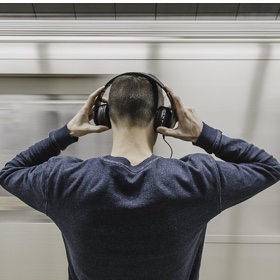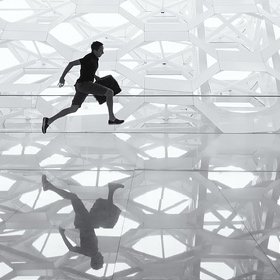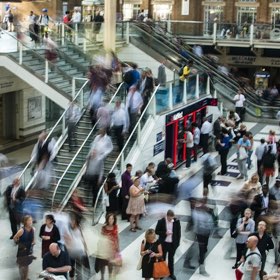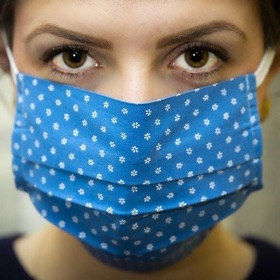
 Practical tips by Resident Osteopath at Shine, Church Street N16, Andrew Doody.
Practical tips by Resident Osteopath at Shine, Church Street N16, Andrew Doody.
So let’s get the cold out of the way first shall we?
The cold can definitely be detrimental to health in lots of ways. Vascular, neurological and skin conditions among others can all be aggravated, as well as viruses being more effective at lower temperatures.
As well as these issues though, enough people complain of musculoskeletal pain being worse in the winter to beg the question, why? And what can be done to help?
Well, a bit like flu getting more prevalent in winter, we’re not absolutely sure why, or if the cold is really the problem. Our core body temperature is very well controlled and doesn’t vary much unless in extreme conditions even in our limbs. Most cold related injuries are in extremities (fingers, toes, noses) which are less insulated and more exposed. Also, like flu, if cold was a major cause of musculoskeletal pain, we would see trends of warmer countries reporting less cases, which, like flu, they generally don’t.
 So why do we feel it?
So why do we feel it?
Well, there’s several things it could be.
People tend to exercise less in winter, the cold and dark can put them off. Exercise can be very good for many joint and musculoskeletal pains, so maybe that is a good reason to start with.
People’s mental health suffers more in winter. Even if not in a major way like seasonally adjusted disorder (SAD), people generally feel happier and more optimistic in summer. Psychosomatically mood has a huge effect on levels of pain and how that pain is tolerated so that’s another likely cause.
Thirdly, conditions in the winter may play into pain and injuries, hard or slippy conditions underfoot for example can cause many minor injuries.
So what can we do about it?

Of course stay warm! Dress appropriately for the weather and conditions. Layer up, and get some good winter footwear. Follow the weather reports so not to get caught out.
Keep up your exercise, indoors if it has to be, maybe find new activities that suit. Drag your friends along.
Think about your mental health, plan things that will cheer you up, big or small, it’s too easy just to “hibernate” in winter. I always think the best time to go on a beach holiday is when it’s cold at home, but even a trip to the theatre/cinema or dinner with friends will help.
A lot of the solution is centred around organisation. In the long winter months you might have to put that extra effort into planning to keep warm, active and happy, but it’s most definitely worth it.
Now that we are being encouraged to get back to the office, let’s look at our commute, the silent element that wasn’t previously considered when evaluating desk job aches and pains.
 One thing I have noticed during the last two years, from an osteopathic point of view, I at first found a little strange, and that is that lots of the office based physical issues that people complained of pre-covid definitely eased during working from home, then started to reappear as soon as people returned to work.
One thing I have noticed during the last two years, from an osteopathic point of view, I at first found a little strange, and that is that lots of the office based physical issues that people complained of pre-covid definitely eased during working from home, then started to reappear as soon as people returned to work.
Seeing as many of these issues are aggravated, if not caused, by sitting at a desk all day, I would have expected working from home, at kitchen tables/sofas and very often laptops, to increase the problem, not the opposite. Going back to a well set up workstation and getting out of the house a bit more should help surely?
Perhaps people have been heeding my advice and setting things up well at home and doing the exercises I suggested?
But that wouldn’t explain the problems coming back straight away on returning to work. It turns out that commuting every day may be one of the big problems.
 Those of us who work in central London don’t need to read the many studies done on the detrimental effects of commuting on our health to know that it’s an issue. But exactly how it affects us, and what to do to help is definitely worth talking about.
Those of us who work in central London don’t need to read the many studies done on the detrimental effects of commuting on our health to know that it’s an issue. But exactly how it affects us, and what to do to help is definitely worth talking about.
Of course stress is a biggie. People who commute regularly have been shown to be at higher risk of high blood pressure, anxiety and depression. They also report more problems with sleep and decreased desire to socialise as well as exercise.
There are also however lots of physical issues, from exposure to germs and pollutants, to musculoskeletal problems from standing or sitting uncomfortably for extended periods twice a day. People who commute have also been shown to be more prone to weight gain, so increasing all the health risks that entails.
So what do we do about it? We have to go to work right?
Well maybe this is the one good effect of covid. Lots of people have been working from home, and now that we are “getting back to normal” many are now considering continuing to work from home at least a day or two a week.
 It’s a balancing act of course, it has become apparent that coming in to work may well help lots with mental health (as opposed to not coming in at all) as well as creating some physical exercise. However having less commutes a week should also certainly help.
It’s a balancing act of course, it has become apparent that coming in to work may well help lots with mental health (as opposed to not coming in at all) as well as creating some physical exercise. However having less commutes a week should also certainly help.
Wearing a mask due to covid cuts down the amount of pollution inhaled massively, as well as cutting down the risk of catching other airborne diseases, maybe we should keep it up.
Thirdly if trains and tubes are less busy it’s far less stressful and cramped, and the same goes for stress levels if there’s less traffic.
There’s a few obvious things to do of course. Could you cycle to work? Or at least to the station? Maybe get off the train a stop or two early, or park further away and walk the last section?
From a stress point of view make sure you’re not on the last minute. If you can change your commute times to catch a quieter period that will help lots, even if it’s not possible every day.
Quieter trains/tubes don’t only mean less stress, but also more room to stretch out a little, which brings me to the musculoskeletal side of things.
Sit in a good position, both feet flat on the floor, bum to the back of the seat. If you need to get up and have a stretch then do.
 Don’t slump, and don’t be looking down at your phone all the time, it’s an awful position and it’s stressful. Try listening to music or podcasts/audiobooks, it’s far more relaxing and it keeps your head upright. Most of all try to start enjoying and even looking forward to your commute.
Don’t slump, and don’t be looking down at your phone all the time, it’s an awful position and it’s stressful. Try listening to music or podcasts/audiobooks, it’s far more relaxing and it keeps your head upright. Most of all try to start enjoying and even looking forward to your commute.
Andrew – Osteopath at Shine, Church Street.
Expert Osteopathy services near you
Stoke Newington
Newington Green
Islington
N1
N16
North London



